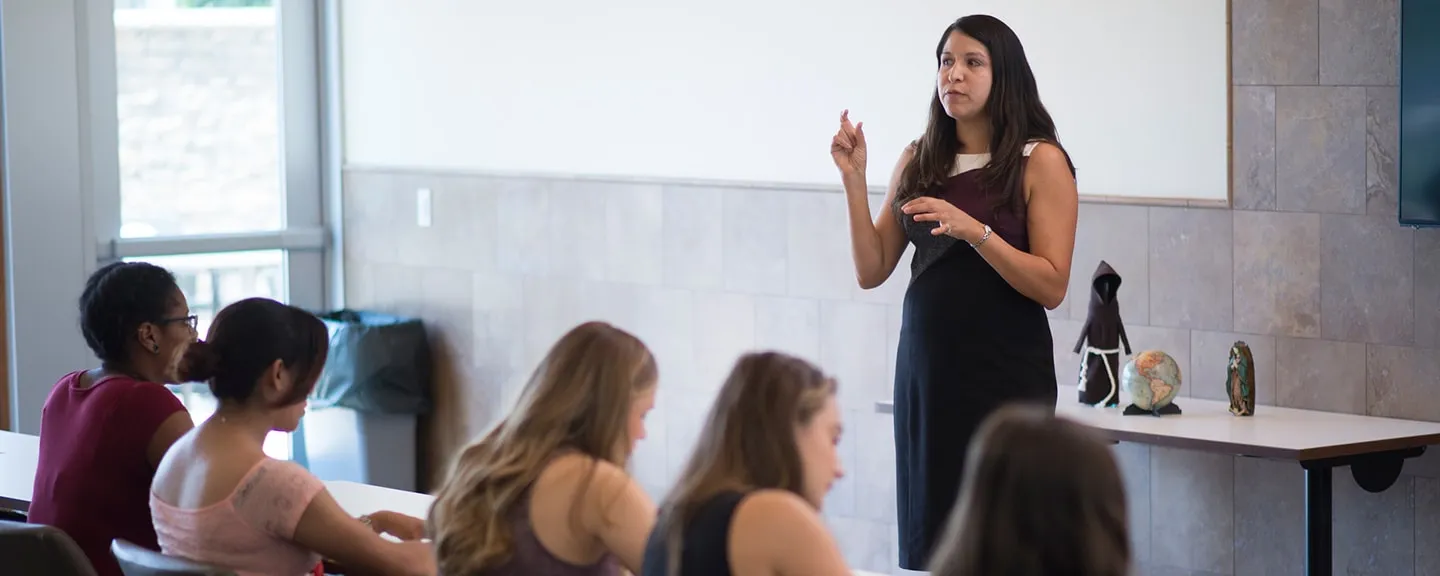- Home
- >
- APU Articles
- >
- News Article
How to Find an Internship That Boosts Your Résumé
October 20, 2018 | Written By Ashley Eneriz

Here’s some advice for setting ambitious and attainable goals, as well as tips around how to find an internship that will help your résumé stand out.
Set Internship Goals
There are thousands of internships available—both in-person and virtually. Before you set out on your internship search, it’s a good idea to spend a few minutes brainstorming your current strengths and likes, as well as your future career goals. For example, if your desire is to become an accountant, then interning for an online fashion blog might not give you the experience that job recruiters will be looking for.
It is also wise to create a list of companies you wish to work at one day, since many big organizations hire from within. For example, if your ultimate goal is to be a writer for Disney, an internship on Disney’s social media team might provide you that “in” you need to network and get a job in your desired field.
How to Find an Internship
Once you have identified what type of internship you want, it will be easier to pinpoint the listings you should apply to. Start with your school’s career center. At Azusa Pacific University, students have access to the school’s Handshake Career Platform, which allows them to connect with companies looking for interns. Students can also benefit from APU’s subscription to Internships.com, which enables them to search thousands of internship listings.
Networking is another effective way to gain access to internships. Thankfully, almost everyone in your life is a potential connection! Sometimes it is as simple as telling a relative or family friend, “I am going to college for X, do you know anyone in this field that I can talk to or intern with?” Through this simple statement, many doors could open. For example, your uncle might have a best friend who works in real estate that needs help with listings, or your pastor might be able to introduce you to a CEO in the congregation that regularly hires interns.
Refine Your Résumé for Success
Don’t become discouraged if you have little to no work experience. You can still create a head-turning résumé. First, write out a list of all of your strengths, accomplishments, and awards/honors received. Don’t be shy to mention if you were a scholarship winner for academic excellence or athletic skills. Next, make a list of all the jobs you have had, especially important non-paid roles like club secretary, yearbook editor, or Sunday school teacher. List out all of your volunteer experience as well.
A common mistake that some college students make is simply throwing a bulleted list on a piece of paper and calling it their résumé. Instead, with your list in hand, create a résumé that paints a professional picture. Look at what items on your list complement each other. Make sure to describe how your strengths and accomplishments played a critical part in your work and volunteer experience.
For example, instead of saying, “Sunday School Teacher (2015-18) Church on the Rock: Cared for the two and three-year-old classes,” expand your job description to reflect your actual tasks. The description might look closer to this:
Toddler Sunday School Teacher (2015-18) Church on the Rock I lead a group of 20 toddlers through a structured Christian curriculum, implementing hands-on activities that engage the students and deepen their understanding of each week’s lesson. I coordinate lesson plans with the children’s pastor and make copies for all Sunday school classes.
Your job or volunteerism probably requires several skills—so highlight them! You can group similar jobs or volunteer opportunities together. For example, if you have gone on five weekend mission or service trips, you can bundle them under one heading and give a few details about each one.
Rock the Internship Interview
You already know that you are ready for this internship, now you just need to convince the interviewer. The best way to prepare (and calm your nerves) is to write out your strengths, weaknesses, personality points, and future career goals, as well as why you are the right fit for the company.
It is a good idea to write all of this down ahead of time and look at it once a day. Even though you know who you are, it can be easy to draw a blank when someone asks you, “How will your strengths play a role in this internship?” or, “Tell me an example of how you overcame your weakness in another job or class.”
Along with being confident in your abilities, spend some time researching the job you are interviewing for. Look at the company’s list of objectives or tasks for the role and be ready to explain how you can expertly fill that need.
Still feeling a little nervous? You are in good company! The majority of individuals feel anxious or overwhelmed before they go into an interview. You can brush off some of these nerves by practicing your spiel during a mock interview with a career consultant.
Ready to pursue your dream internship? Explore the Career Center at Azusa Pacific University for more tips on how to find an internship and advice for impressing the interviewer.